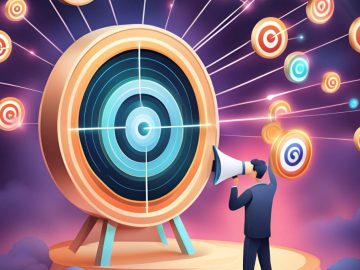The Gist:
- AI empowers workers. AI removes repetitive tasks and gives workers more time to focus on creativity and high-impact roles.
- Future of citizenship. AI’s rise offers the potential to revitalize civic engagement and allows people to invest more energy in societal issues and advocacy.
- AI’s role in societal change. The future of work and citizenship are intertwined as AI not only reshapes jobs but also provides the tools for tackling social issues and advancing equitable policies.
The rise of generative AI has sparked fears of mass unemployment, with people worried that advanced AI will render their jobs obsolete. Yet this anxiety misses a crucial point: AI’s real power isn’t in replacing humans, but in transforming the future of work itself. Instead of displacing workers, AI can liberate them from tedious tasks and allow them to focus on roles that are more meaningful — jobs that require creativity, human connection and strategic thinking.
Today’s work environment, in many ways, wastes human potential. For example, in marketing, professionals spend countless hours crafting reports that gather dust, churning out formulaic social media posts or sitting in meetings that rarely yield actionable insights. Customer support teams spend much of their time answering routine queries that don’t engage their problem-solving skills. Salespeople, too, find themselves drowning in administrative tasks like updating CRM systems and cold-calling instead of building relationships with clients.
The Future of Work in Marketing, Customer Support and Sales
The promise of generative AI is that it can handle much of this busywork, giving us back time to focus on what really matters.
In marketing, for instance, AI can streamline report generation and automate content creation, which frees up marketers to spend more time with customers, understand emerging trends and collaborate on creative initiatives. Instead of debating last quarter’s metrics, marketers could be out in the field, gathering insights that could drive company direction.
For customer support, generative AI offers a shift from transactional to relational. Instead of employees needing to handle the same FAQs daily, AI can manage routine inquiries and allow support staff to engage in meaningful conversations that build customer trust. With AI taking over repetitive tasks, support agents can become key touchpoints, provide personalized advice and build long-term customer satisfaction. The shift is from mere problem-solving to relationship-building, which makes the role both more fulfilling and more impactful.
Sales is another area where AI could make a big change in the future of work. Salespeople often feel shackled to data entry, follow-up emails and cold outreach that rarely yields results. With AI handling these routine tasks (i.e., logging CRM entries, sending follow-up messages and pre-qualifying leads), sales teams can spend time where it really counts: understanding clients’ needs, building rapport and crafting solutions. This reallocation of focus allows sales professionals to use their human intuition, empathy and skills to create stronger client connections.
Related Article: What History Teaches Us About Generative AI’s Impact on Humanity
How AI Empowers Creativity and Innovation
One of AI’s most transformative effects on the future of work could be its ability to promote human creativity. Freed from monotonous tasks, people can channel their energy into innovation and strategic thinking.
Marketers can craft campaigns inspired by genuine customer insights; support teams can help design services that anticipate needs; and sales teams can strategize for growth rather than focusing on short-term metrics. Generative AI can synthesize data and make recommendations, but human creativity will shape new products, services and experiences.
The implications go beyond improving work lives. AI has the potential to enrich our civic lives as well. Imagine a world where we’re not only free from soul-deadening work but also have more time and energy to engage as informed and motivated citizens. Liberated from hours of mundane tasks, we could reinvest that energy in our communities, get more involved in our political system and actively participate in the decisions that shape our society.
With AI handling time-consuming work, people could have the bandwidth to engage in civic duties, volunteer, advocate for change and build the kind of society they want. AI could open the door to a renaissance in civic participation and political engagement.
How AI Can Advance Societal Progress
AI can also empower us to address society’s most pressing issues. As it drives wealth creation, we need to make sure these gains are fairly distributed. AI could give us the tools to educate ourselves and organize effectively, enabling us to push for policies that address fundamental societal challenges. The productivity unleashed by AI presents an opportunity to ensure that critical social issues — such as child poverty, environmental degradation and even the prevalence of war — become problems of the past, not the future.
This isn’t utopian thinking. With access to real-time data analysis and organizational tools powered by AI, people could drive more effective advocacy for equitable wealth distribution and social policies that benefit everyone. Imagine a future where AI doesn’t just enhance our jobs but helps eliminate egregious inequalities and injustices. Generative AI could help us gather and analyze data to make informed decisions while also mobilizing resources to tackle issues like hunger, health care access and environmental sustainability.
By leveraging AI, we have the power to create a fairer, more humane society where resources are allocated more equitably and where social progress becomes a collective mission.
Related Article: Automating Customer Service & Employee Tasks for Better CX
The Future of Work and Human Potential
We are on the brink of a workforce shift that could lead to greater job satisfaction, better work-life balance and a culture of continuous innovation. Rather than fear AI’s rise, we should embrace it as a tool for amplifying human potential in the future of work. By reducing inefficiency and eliminating busywork, AI gives us the chance to focus on what truly matters: solving complex problems, building relationships and driving creativity.
View all
In this new era, we’re not looking at a world where humans are replaced by machines. Instead, we’re looking at a future where AI allows us to reach new heights, helping us realize the full potential of human talent in ways we haven’t yet imagined. Let’s welcome AI not as a threat, but as an opportunity to reshape work into something more meaningful, efficient and human-centered. Far from a future of unemployment, AI promises a world of opportunity — one where human talent is liberated, not replaced, and where work becomes more impactful for everyone.
The choice is ours. We can shape this technology to build a world where people are free to focus on meaningful work and empowered to address societal ills with precision, speed and scale. By embracing AI, we’re not just advancing productivity; we’re advancing human potential for the benefit of society and our future.
Learn how you can join our contributor community.




